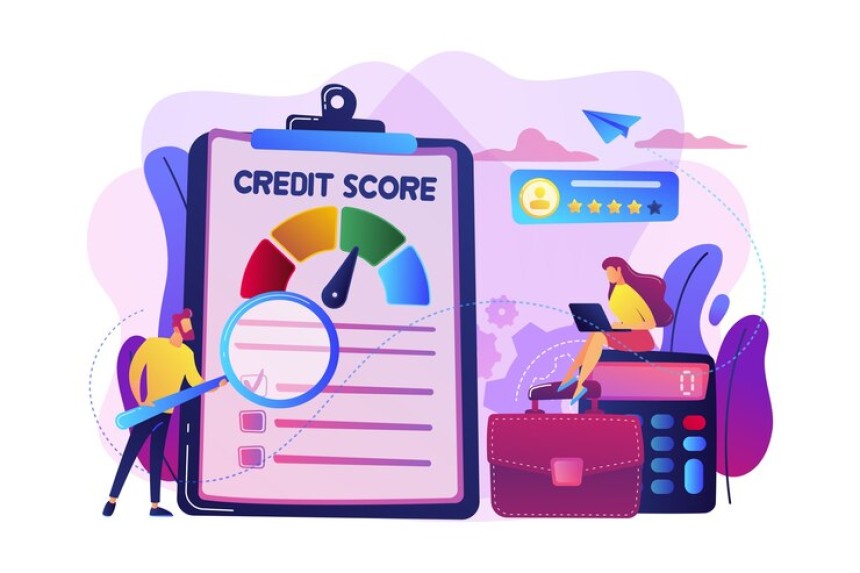
My Credit Score Dropped 20 Points
Your credit score may of dropped 20 points for many reasons. It could be a closed account, missed payment or collection added. See how to fix this and improve it.
Click Here To Join Our Mailing List For Credit & Money Tips!
Your credit score is a crucial number in your financial life. It can determine whether you get approved for a loan, the interest rates you’ll pay, or even if you land a job or secure housing. So, when you check your credit score and notice it has dropped, especially by something like 20 points; it’s natural to feel concerned and even confused. What happened? What changed? And more importantly, what can you do about it?
A 20-point drop might not seem like a huge deal if you have an excellent score, but it can mean a lot more if you're hovering near a threshold between "good" and "fair" or "fair" and "poor." Understanding what causes such a drop is the first step in fixing it and preventing further declines.
Understanding How Credit Scores Work
Before diving into the possible reasons for a sudden decrease, let’s quickly recap how credit scores are calculated. The most commonly used credit score is the FICO Score, which ranges from 300 to 850. It’s calculated based on five key factors:
- Payment History (35%) – Whether you’ve paid your bills on time.
- Amounts Owed (30%) – Your credit utilization ratio, or how much credit you’re using compared to your total available credit.
- Length of Credit History (15%) – How long your credit accounts have been active.
- New Credit (10%) – How many new credit accounts you’ve opened or applied for recently.
- Credit Mix (10%) – The variety of credit types you have (credit cards, loans, mortgages, etc.).
Any change in these categories can impact your score, sometimes immediately.
Common Reasons Your Credit Score Dropped 20 Points
Here are the most likely explanations for why your score might have suddenly dropped by 20 points:
1. A Missed or Late Payment
One of the most common and damaging mistakes is missing a payment. A single late payment especially one that’s 30 days or more overdue, can hurt your credit score significantly. Depending on your credit history, it could cause a drop of anywhere from 20 to 100 points.
If this is your first missed payment and your credit history has otherwise been clean, the hit might be closer to 20–30 points. However, the impact is more severe if you’ve had issues in the past.
Tip: Set up automatic payments or reminders to avoid this issue.
2. A Significant Increase in Credit Utilization
Credit utilization refers to the ratio of your credit card balances to your total credit limit. A general rule of thumb is to keep your utilization below 30%. If your balance spikes due to holiday shopping, a large purchase, or an emergency it can cause your score to dip, even if you plan to pay it off soon.
Let’s say you have a $10,000 total credit limit and usually carry a $1,000 balance (10% utilization). If your balance jumps to $4,000 (40% utilization), that increase alone could drop your score 20 points or more.
Tip: Try to pay down large balances before the statement closing date to keep utilization low.
3. A New Hard Inquiry
Every time you apply for a new line of credit, such as credit card, auto loan, mortgage, or even some apartment rentals, a hard inquiry is made on your credit report. This can temporarily lower your score by a few points (typically 5–10 points per inquiry), but multiple inquiries in a short time can add up and may cause a noticeable drop.
While a single hard inquiry isn’t usually enough to knock your score down by 20 points, if it’s paired with another factor (like higher credit utilization), the cumulative effect could easily hit that mark.
Tip: Space out your credit applications and avoid applying for credit you don’t need.
4. An Account Was Closed
Whether it was closed by you or the lender, a closed account can impact your credit score, especially if it was a longstanding account or had a high credit limit. Why?
- It can reduce your average account age.
- It lowers your overall available credit, which can increase your utilization ratio.
For example, closing a credit card with a $5,000 limit when you still owe $4,000 on another card makes your utilization appear worse, even if your total debt hasn’t changed.
Tip: If you don’t use a card often, consider keeping it open (just don’t let it go dormant).
5. An Error on Your Credit Report
Credit report errors are more common than you might think. According to a study by the Federal Trade Commission (FTC), one in five people has an error on at least one of their credit reports.
Examples include:
- Incorrect late payments
- Duplicate accounts
- Accounts that don’t belong to you
- Incorrect balances or credit limits
These errors can significantly affect your score. If your drop is sudden and you can’t pinpoint a cause, request copies of your credit reports from the three major bureaus Equifax, Experian, and TransUnion and review them for mistakes.
Tip: You can get a free credit report weekly at AnnualCreditReport.com.
6. A Derogatory Mark Was Added
This could include things like:
- A charge-off
- A collection account
- Bankruptcy filing
- Foreclosure
- Tax lien
These are serious marks that can cause significant damage to your score often well over 20 points, but sometimes they show up unexpectedly (for instance, a bill you forgot about that went to collections). Even a small medical bill that gets reported to collections can lead to a sharp dip.
Tip: Stay in communication with creditors, and check your reports regularly to catch problems early.
7. Your Credit Mix Changed
If you recently paid off a loan or closed a credit card, you might be reducing the diversity of your credit accounts. While this factor has a smaller influence, changes in your credit mix can still contribute to a 20-point fluctuation especially if combined with other changes.
Tip: It’s okay to pay off debts (and you should!), but be aware it might cause a short-term drop before your score rebounds.
8. Changes in Reported Balances Across Multiple Accounts
Sometimes, your score drops not because of one big change, but a combination of smaller ones: a slightly higher balance on one card, a newly reported car loan, and a recent hard inquiry. The credit scoring algorithm doesn’t always see these as minor, and their cumulative effect can trigger a 20-point loss.
How Long Will It Take for My Score to Recover?
The recovery time depends on the cause:
- Late payment: Can stay on your report for 7 years, but the impact lessens over time.
- High utilization: Can bounce back as soon as you pay down the balances.
- Hard inquiry: Usually drops off after 12 months.
- Errors: Once corrected, your score should rebound quickly.
- Closed accounts or mix changes: These tend to correct over time as your credit history continues to evolve.
What Should I Do if My Score Drops?Step 1: Check Your Credit Reports
Get reports from all three major credit bureaus and look for:
- Late payments
- New inquiries
- New accounts you didn’t open
- High balances
- Closed accounts
Step 2: Identify the Cause
Compare the current report to previous ones if you have them. Credit monitoring services often provide score-change alerts and a breakdown of what changed.
Step 3: Dispute Any Errors
If you find inaccuracies, file a dispute with the bureau reporting it. They’re required to investigate and respond within 30 days.
Step 4: Take Corrective Action
- Pay down high balances
- Avoid new inquiries
- Make all payments on time
- Consider asking for a credit line increase (to improve utilization)
- Don’t close old accounts unless necessary
Bottom Line: Credit Scores Fluctuate And That’s Normal
A 20-point drop in your credit score can feel alarming, but it’s often a temporary blip. The key is not to panic. Credit scores are designed to be dynamic they go up and down based on your financial behavior.
What matters most is your long-term pattern. If you keep balances low, make payments on time, and only apply for credit when necessary, your score will likely bounce back and possibly climb even higher.
So next time you notice a dip, treat it as a signal, not a sentence. Investigate, adjust, and move forward with your financial goals.





